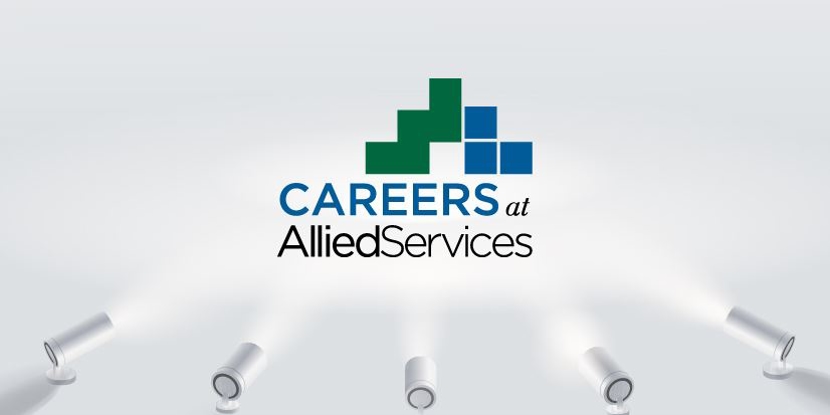Preparing for a successful hospital discharge
- Category: News, Medical Evaluation
- Posted On:
- Written By: Allied Services Integrated Health

Throughout my years as a healthcare professional, I have seen how an early, wrongful, or ill-prepared discharge can have a detrimental impact on a patient’s recovery process. Often, elderly patients return home and find that they cannot care for themselves or do not have sufficient support to be able to make a full and smooth recovery. In the worst case, they may end up back in the hospital. In 2020, the Centers for Medicare and Medicaid Services (CMS) reported that 16% of patients between the ages of 65 and 74 discharged from Pennsylvania acute care hospitals were readmitted within 30 days.
There are many reasons why an elderly patient might be readmitted to the hospital. These include complications following a procedure, adverse drug reactions or medication-related issues, premature discharge, inadequate post-discharge support, insufficient follow-up, or failed handoffs. Some readmissions are unavoidable however I would argue that proper preparation before a patient leaves the hospital can help avoid many of these pitfalls.
When someone is discharged from the hospital, this is just the first step in their recovery. Although they no longer need hospital-level care, they will likely need extra care over the coming weeks and months. They may even need an intense level of nursing or rehabilitation in order to be able to return home safely. The type and intensity of care deemed appropriate for you will be determined by a number of factors including age, mobility, ability to perform activities of daily living (bathing, dressing, cooking, getting to doctor’s appointments), and insurance.
The CMS has published a discharge planning checklist, available for free on their website. This is a valuable tool when you or a loved one is admitted to the hospital. It provides you with the questions you and your family member/caregiver should ask to prepare for a successful discharge. Some important questions you need to ask are:
- What care you’ll be getting after you are discharged. What do you qualify for? Home health? Skilled nursing? Inpatient rehabilitation?
- What equipment will you need to use to be safe at home?
- Are you ready to do everyday activities like bathing, using the bathroom, cooking, etc? If not, what support is available?
- If you have a caregiver at home, what skills will they need? For example, giving injections or changing a dressing?
- What medications do you need to take?
An important step that you can take even before hospitalization is to make yourself familiar with your insurance benefits.
If you or a loved one is struggling with self-care and mobility, know that there are steps that you can take to regain your health and independence. Frequently, patients require continued care at another level after leaving a hospital. If this hasn’t happened and you are now struggling at home, you may still be eligible for inpatient care. Whether you are struggling at home following a hospitalization, injury, illness, or an age-related decline in function, your primary care physician can help. Following a full evaluation of your condition and function, they can make recommendations about the type of care you require.
About the Author: Kathy Stella, RN, BSN, CRRN, is Assistant Vice President of Admissions and Case Management at Allied Services.
Find care for people struggling at home
After dealing with an injury or chronic illness, it is common for people to experience difficulty with everyday tasks. Prolonged bed rest, inactivity, illness, or an injury can lead to deconditioning and can affect your balance, endurance, mobility, energy, and mood. These changes can make taking care of yourself, moving around your home, and enjoying recreational activities difficult.
Rehabilitation medicine specifically addresses the problems of mobility and self-care to help you move better, maintain your independence, avoid re-hospitalization, and live safely at home. Allied Services Rehabilitation Medicine Center makes finding the right care for you or a loved one easier and faster.
No referral is needed. Simply call 570-348-1211 today to get started.



